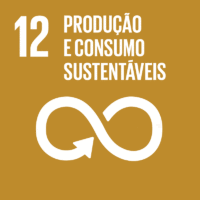Ciência_Iscte
Publicações
Descrição Detalhada da Publicação
Procedia Computer Science
Ano (publicação definitiva)
2021
Língua
Inglês
País
Estados Unidos da América
Mais Informação
Web of Science®
Scopus
Google Scholar
Esta publicação não está indexada no Overton
Abstract/Resumo
Industry 4.0 constituted a trigger to a new phase in the Industrial Revolution, heavily focused in the interconnectivity of the systems, bringing disruptive technologies such as Additive Manufacturing (AM). On top of that, the shift from an industrial economy to a knowledge-based economy, where knowledge is the actual raw material, is implicating changes on the labor market, as new jobs strongly rely on knowledge-intensive activities. This is forcing organizations to rethink their way to operate, since markets are getting even more competitive and susceptible to greater volatility. Herewith organizations are resorting to AM as way to strengthen competitive position, as this technology allows to seize new opportunities. As response to that, this paper presents an industry
analysis to AM based on Porter’s Five forces model, where forces such as threat of new entrants, bargaining power of customers, threat of substitutes, bargaining power of suppliers and rivalry among the existent competitors will be discussed under a knowledge perspective. The compiled evidence show that AM industry will plausibly suffer from a high rivalry in the next few years, as consequence of the increased power of customers and suppliers, low entry barriers for new entrants and due to pressures for a more sustainable society. Although these forces will not be totally controllable, organizations can plan their business strategy according to the knowledge they have on them. This type of approach will allow organizations to influence these forces more closely and at
the same time to predict possible scenarios, identify tendencies and map the sector. In the present paper is proposed a conceptual model based on Porter’s five forces to analyze the impact of AM on firms’ strategy. For future development this model will be extended to organizations operating with AM in Portugal for validating its practical applicability, which will be performed through questionnaire and/or case study.
Agradecimentos/Acknowledgements
--
Palavras-chave
Additive manufacturing,Porter’s Five Forces Model,Industry 4.0,Knowledge economy
Classificação Fields of Science and Technology
- Engenharia Mecânica - Engenharia e Tecnologia
- Economia e Gestão - Ciências Sociais
Registos de financiamentos
| Referência de financiamento | Entidade Financiadora |
|---|---|
| PTDC/EME-SIS/32232/2017 | Fundação para a Ciência e a Tecnologia |
Contribuições para os Objetivos do Desenvolvimento Sustentável das Nações Unidas
Com o objetivo de aumentar a investigação direcionada para o cumprimento dos Objetivos do Desenvolvimento Sustentável para 2030 das Nações Unidas, é disponibilizada no Ciência_Iscte a possibilidade de associação, quando aplicável, dos artigos científicos aos Objetivos do Desenvolvimento Sustentável. Estes são os Objetivos do Desenvolvimento Sustentável identificados pelo(s) autor(es) para esta publicação. Para uma informação detalhada dos Objetivos do Desenvolvimento Sustentável, clique aqui.

 English
English



